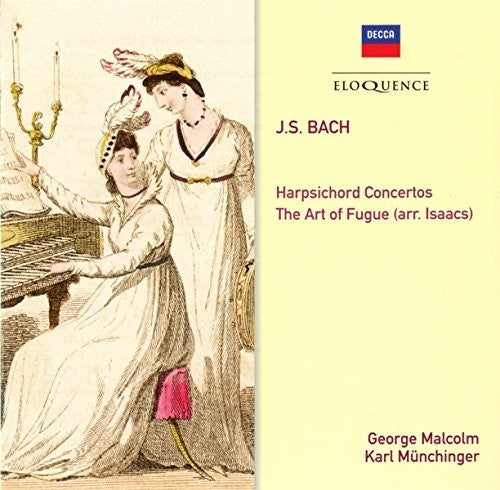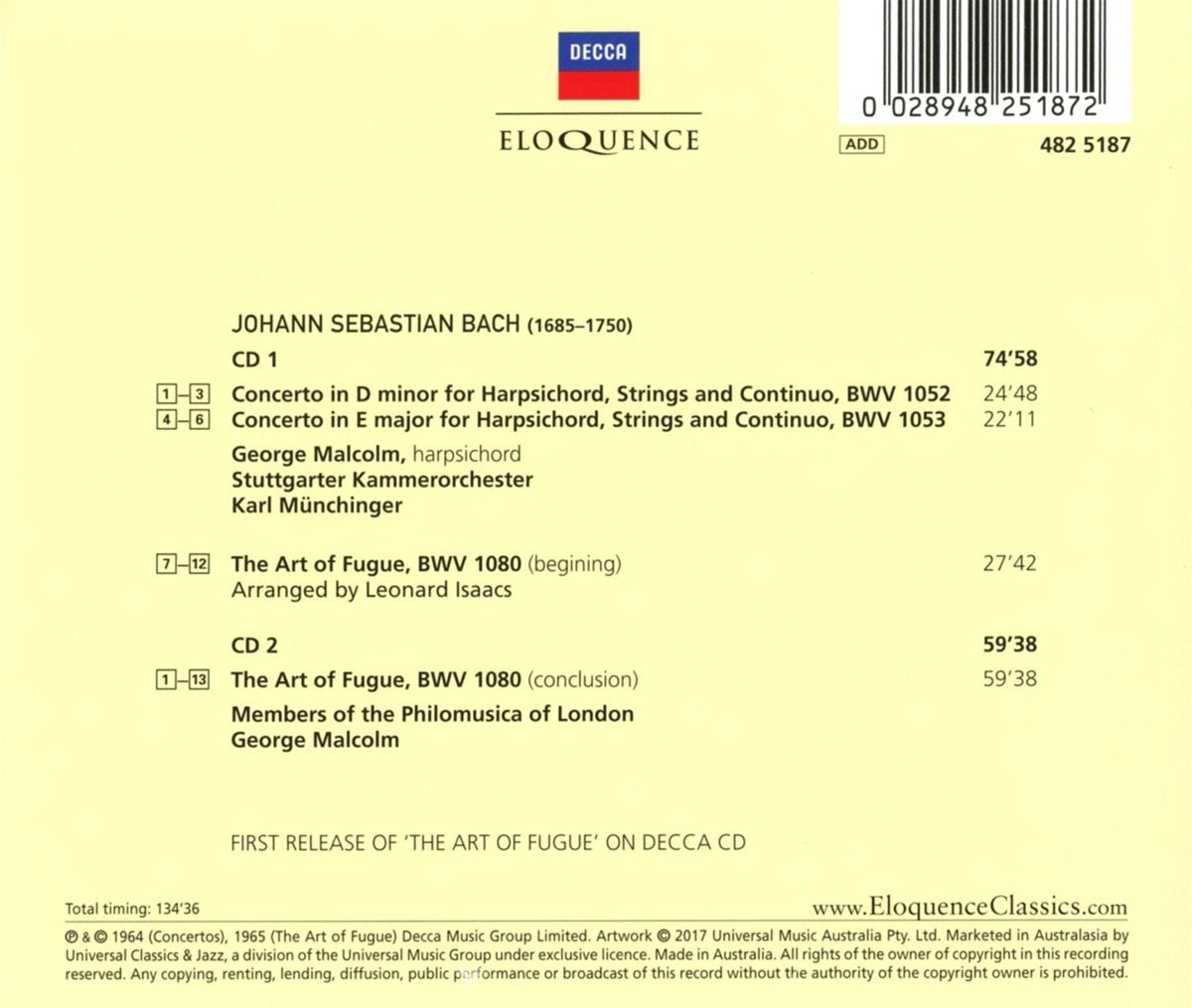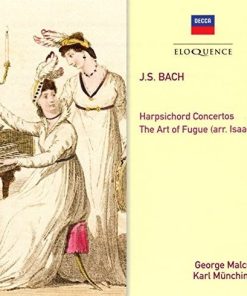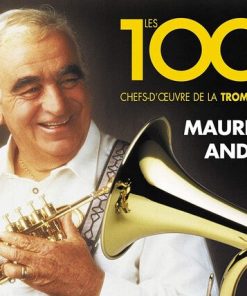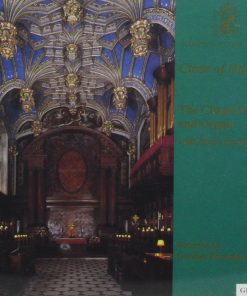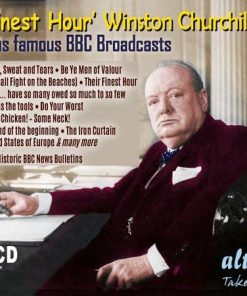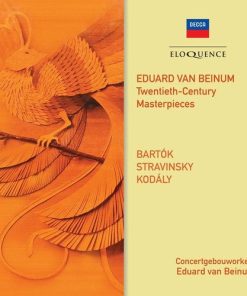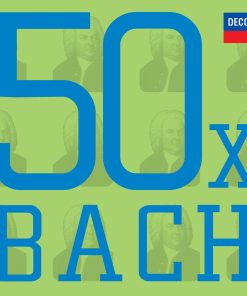BACH: ART OF FUGUE; HARPSICHORD CONCERTOS – GEORGE MALCOLM; KARL MUNCHINGER (2 CDS) DECCA
$ 16,99 $ 10,19


There were many worlds in George Malcolm’s (1917–1997) universe – organist, harpsichordist, pianist, composer, choral director and conductor – and this one demonstrates his unique skill as a solo performer who, throughout his career, more than any other individual defined the harpsichord’s identity in England. After World War II, Malcolm became the most famous English harpsichordist of his day, with a brilliant technique, superb musicianship and an idiosyncratically modern approach to playing which, for his audiences, came to exemplify the very nature of the instrument itself.
Bach’s last work, ‘The Art of Fugue’, left unfinished at his death, has been shown by many scholars and performers to have been composed for the keyboard although the first printed edition of 1751 presented the piece in open score which led to its being mistaken for an ensemble work. Scholars, Donald Francis Tovey and Heinrich Husmann, working in the 1930s and harpsichordists, Isolde Ahlgrimm and Gustav Leonhardt, in the 1950s, firmly established the work as a harpsichord piece (pedal harpsichord, in Ahlgrimm’s case). However, in his 1964 recording Malcolm directed his colleagues of the Philomusica of London (an outgrowth of the Boyd Neel String Orchestra, founded in the 1930s) in English conductor Leonard Isaacs’s 1952 arrangement of the work for strings and winds (with some participation by Malcolm as harpsichordist). Leonard Isaacs (1909–1997) was, like Malcolm, a piano student of Herbert Fryer at the Royal College of Music.
Notes are by Peter Watchorn, an Australian-born, US-based harpsichordist, one of whose teachers, Harold Lobb, was also an associate of Malcolm. In Watchorn’s opinion, Malcolm’s greatest (and often over-looked) concerto recording was that of BWV 1052 and 1053 recorded in 1963 in Stuttgart with Münchinger’s celebrated chamber orchestra.

JOHANN SEBASTIAN BACH
CD 1
Concerto in D minor for Harpsichord, Strings and Continuo, BWV 1052
Concerto in E major for Harpsichord, Strings and Continuo, BWV 1053
George Malcolm, harpsichord
Stuttgarter Kammerorchester
Karl Münchinger
The Art of Fugue, BWV 1080 (start)*
(arr. Leonard Isaacs)
CD 2
The Art of Fugue, BWV 1080 (conclusion)*
Members of the Philomusica of London
George Malcolm
*FIRST RELEASE ON CD

‘[a] finely directed performance … [Malcolm’s] instrumentalists are superb, so good that their playing and the variety of sounds sometimes diverted my attention from the amazing working of Bach’s mind!’ (The Art of Fugue) Gramophone, February 1965
‘I give first prize to a record which took me out of my usual field: George Malcolm’s magnificent performance of Bach’s great Harpsichord Concerto No. 1 in D minor’, Gramophone, December 1964 (Deryck Cooke, The Critics’ Choice)
‘this inspired harpsichord performance … superb skill and musical insight by George Malcolm … What a work and what a performance! And what a recording too’ (Harpsichord Concertos) Gramophone, May 1964
Fast Shipping and Professional Packing
Due to our longstanding partnership with UPS FedEx DHL and other leading international carriers, we are able to provide a range of shipping options. Our warehouse staff are highly trained to pack your goods exactly according to the specifications that we supply. Your goods will undergo a thorough examination and will be safely packaged prior to being sent out. Everyday we deliver hundreds of packages to our customers from all over the world. This is an indication of our dedication to being the largest online retailer worldwide. Warehouses and distribution centers can be located in Europe as well as the USA.
Orders with more than 1 item are assigned processing periods for each item.
Before shipment, all ordered products will be thoroughly inspected. Today, most orders will be shipped within 48 hours. The estimated delivery time is between 3-7 days.
Returns
The stock is constantly changing. It's not entirely managed by us since we are involved with multiple parties such as the factory and our storage. The actual stock can fluctuate at any time. Please understand it may happen that your order will be out of stock when the order is placed.
Our policy is valid for 30 days. If you haven't received your product within 30 days, we're not able to issue either a return or exchange.
You are able to return a product if it is unused and in the same condition when you received it. It must also still remain in the original packaging.
